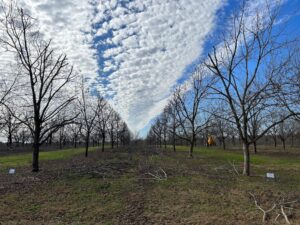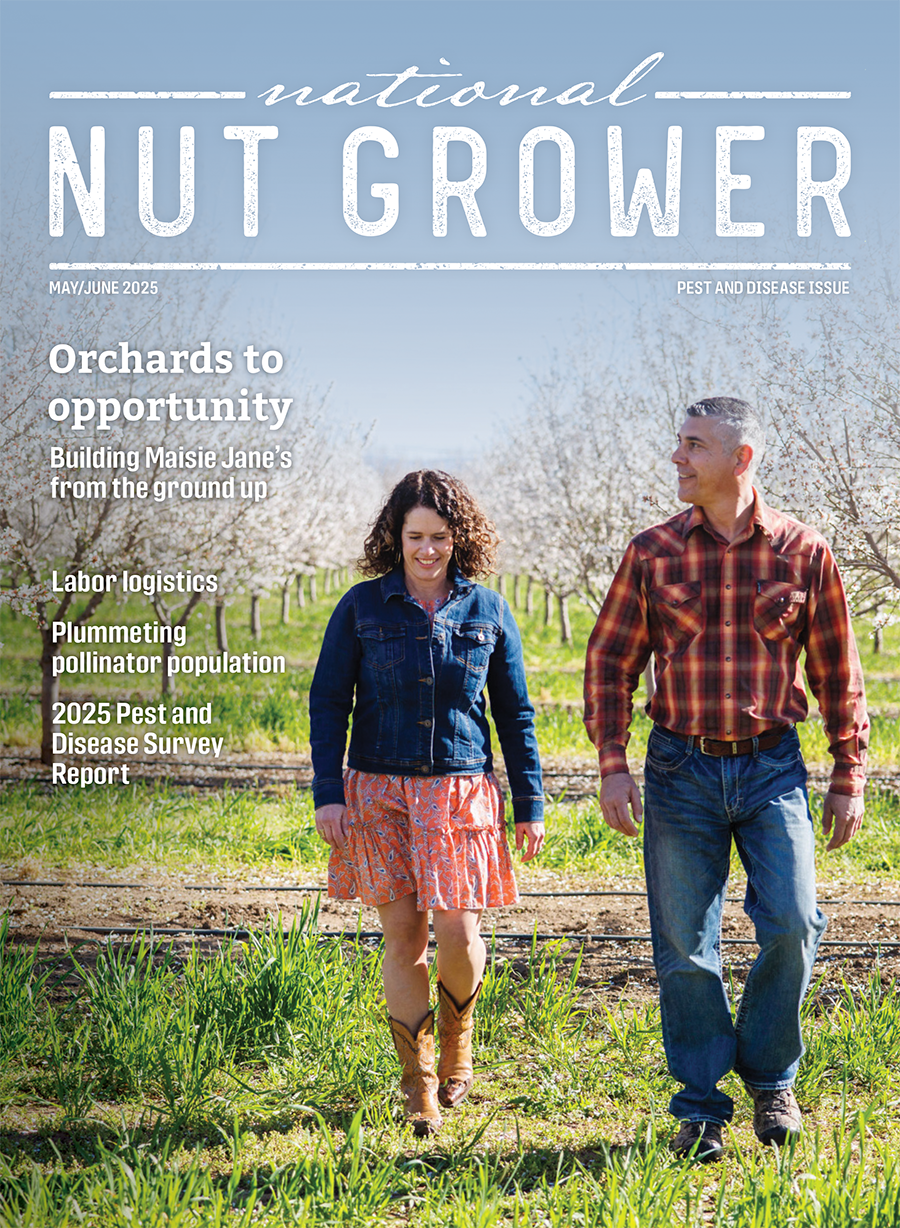Mar 22, 2023Four faculty members from UGA participate in pecan study
The University of George announced that four of faculty from its College of Agriculture have received an award for its second phase of a pecan study, which is one of the state’s commodities.
The award of $737,227 will allow the research project, called Trees for the Future: Coordinated development of genetic resources and tools to accelerate breeding of geographic and climate adapted pecans, to advance, according to UGA’s news release.
The release noted the grant narrative explained that “‘climate extremes, pest and pathogen shifts, and changing consumer preferences apply ever-increasing pressures on crop breeders.’ The pecan, which has long juvenile periods of 15 to 20 years before trees begin to produce, presents a particular challenge for breeders and producers.”

Objectives
“The overall grant includes five major objectives: Leveraging pecan genetics towards breeding pecan trees for climate adaptation; describing physiological differences of water relations among pecan genotypes to improve water-use efficiency; characterizing interactions of pecan trees with beneficial and detrimental organisms for improved tree health, reduced pesticide application and increased production; elucidating pecan gene networks and markers that control reproductive traits such as flowering, nut size and kernel biochemical composition; and using pecan genetics to determine markers for pecan tree architecture and growth,” the release detailed.
“Pecan is a very important crop for the economy of the state of Georgia and the Southeast United States and it is also a very nutritious nut with proven health-promoting characteristics,” said Leonardo Lombardini, professor and head of the CAES Department of Horticulture. “The team of scientists leading this project will be able to investigate a broad range of aspects that drive pecan production and consumption, from the genetic make-up of pecan varieties to the nuts’ postharvest attributes. With their extensive expertise, they will deliver important results to help select varieties that will perform well under Georgia environmental conditions and will produce high quality, nutritious nuts.”
Program staff
UGA officials shared that program staff includes experts from CAES, New Mexico State University, USDA-Southeastern Fruit and Tree Nut Research (SEFTN), Texas A&M University, University of California Agriculture and Natural Resources, USDA Pecan Breeding and Genetics (PBG), University of Tokyo, Hudson Alpha Institute, USDA Southern Regional Research Center, University of Arizona and Oklahoma State University.
CAES faculty involved in the project include:
- Patrick Conner, professor and UGA-Tifton research, Extension and instruction (REI) coordinator in the Department of Horticulture
- Lenny Wells, professor and UGA Cooperative Extension pecan specialist in the Department of Horticulture
- Joonhyuk Suh, assistant professor in the Department of Food Science and Technology
- Ronald Pegg, Josiah Meigs Distinguished Professor in the Department of Food Science and Technology.
“A majority of universities with strong pecan background as well as two USDA sites that focus on pecan are represented,” Conner said. “Our work depends on region — wet climates are focused on issues like scab while arid climates are focused on water use efficiency, soil salinity, etc.”
Research team focuses on a variety of issues
Overall the team will focus its research on the following:
Pecan scab
Conner will look at how the fungus Venturia effusa interacts with pecans, in order to address pecan scab and ways to create resistant varieties to reduce the amount of times producers need to spray crops.
“Scab is a fungal pathogen common in the Southeast, which is spread by water on the leaf surface. Scab infection can be very severe and can result in total crop loss on susceptible varieties in a wet year,” Conner said. “We want to enable a more sustainable process of growing pecans in our region.” he said.
To learn more about other objectives in Conner’s study, visit UGA College of Agricultural and Environmental Sciences’ news page.
Bacterial leaf scorch
Wells will “examine the potential effect of hedge pruning on bacterial leaf scorch (BLS) of pecan, which can cause defoliation and reduces tree growth and kernel weight.”
“Hedge pruning is a management practice in which trees are pruned by removing all growth on the tree extending past a certain distance — usually six to eight feet — from the trunk along the length of the tree row and we reduce the height of the tree. This creates a smaller, more compact tree, which has multiple advantages,” Wells said. “We are trying to determine if hedge pruning can help reduce the two major stresses — excessive crop load and drought stress — which often lead to symptom expression of BLS.”
To learn more about Wells’ earlier research and part in the study, review the full article from UGA.
Food product quality
Suh and Pegg will focus on “applying chemistry to food science to improve food and food product quality, such as nutritional quality, safety, flavor and color. Pegg’s research includes functional foods, nutraceuticals (a food containing health-giving additives), identification of bioactive compounds, and their benefits.”
“Consumer acceptability of food products is a driving factor for adopting food production and processing technologies,” said Manpreet Singh, professor and head of the Department of Food Science and Technology.
UGA officials said that Singh and Pegg’s role is to “find key metabolites that are associated with DNA markers obtained from Conner’s research of certain objectives (like pecan scab resistance and morphological properties).”
“Our goal for this project is to support a pecan breeding program selecting pecans with desirable traits, based on chemistry information (metabolites),” Pegg said. “We believe our research will be a pioneer to incorporate chemistry into breeding science and related fields.”
“The project as a whole covers a lot of ground that features work by a lot of great scientists,” Wells said. “I hope we are able to generate more basic knowledge of how pecan trees work and also provide practical answers that are of direct benefit to producers in both the short and long term.”
To learn about this four-year grant and other research being conducted, visit pecans.uga.edu.
Source: Trees for the future: developing climate-adapted pecans, by Jordan Powers, University of Georgia Cooperative Extension, College of Agricultural and Environmental Sciences









